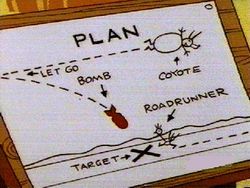Hello b-members!
Today’s mini-lesson will help you answer a very common question in conversations:
“What are your plans for the weekend?”
b メンバーの皆さん、こんにちは!
今日のミニレッスンは、
「週末の予定は何ですか?」
このよく聞かれる質問に答える時に役立つと思います。
In English, the nouns “a plan” and “plans” are used differently.
名詞の 「a plan」 と 「plans」は、使い方が違います。
“A plan” (singular) is usually an organized and detailed way to do a project.
It often has many steps.
「A plan」(単数形)は、通常、事業や大きな計画などを遂行する時に使います。
何度か段階を踏む必要のある場合に使われることが多いです。
The company hasanew planfor increasing sales.
The first step is to change the marketing strategy.
会社は売上を伸ばす為の計画があります。
最初の手段はマーケティング戦略を
変えることです。
The government hasa 5-year planto improve the downtown area.
政府には地域振興の為の5カ年計画があります。

“Plans” (plural) means what you have decided to do with your time—
usually something fun or relaxing.
We use “plans” even if we have decided to do only one thing.
「Plans」(複数形)は自分の自由時間について決めた、遊びの予定について使います。
たとえ、1つしか予定がなくても、複数形の「plans」を使います。
Q: Do you haveany plansfor summer vacation?
A: Yes, I’m going to Hawaii!
質問:夏休み何か予定あるの?
答:ハワイに行くよ!
Q: What areyour plansfor Sunday?
A: I don’t haveany plans. I’m free all day.
質問:日曜日、何か予定あるの?
答:何もないよ。1日空いてるよ。
Q: Why don’t we go out for a drink after work?
A: Oh, I’m sorry, I already haveplans.
質問:仕事の後、飲みに行こうよ!
答:ごめんね、予定あるんだ・・・。
Try asking your LP if she or he has any plans for summer!
And of course, be ready to talk about your summer plans!
レッスンパートナーに夏に「plans」があるか聞いてみましょう。もちろん、
あなたの夏の「plans」について話す準備も忘れずに!

Andrea
















